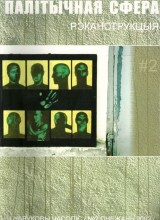
We kindly inform you that, as long as the subject affiliation of our 300.000+ articles is in progress, you might get unsufficient or no results on your third level or second level search. In this case, please broaden your search criteria.

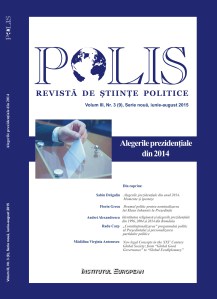
The final debate represents the most broadcasted event of the electoral campaign for the presidential title. Considered risky by the candidates, awaited by the citizens, the final debate succeeds to inform and entertain in the same time. With both their assets and clumsiness, the candidates are faced with each other in order to introduce themselves to the electors and to ask for their votes. In this article I have introduced a short presentation of the presidential debates from the post-Decembrist Romania, followed by an analysis of the 2014 debate, where I have included the first round of the debate hosted by Realitatea TV, and the second one, broadcasted by B1 TV. I have used as a basis the framing theory, and as research method, the content analysis. From la Semetko & Valkenburg (2000) I have taken the classical grid of analysis of the five frames (the attribution of responsibility, the human interest, the conflict, the morality, and the economical ones), and I have watched the prevailing framings within the presidential debate broadcasted by the two televisions. I have also made an analysis on which are the most prominent themes approached by the two rival political actors during the debate. According to the previous research in this field, for both candidates the dominant frame was the conflictual one, followed by the moral-legal one, and by the attribution of responsibility. Surprising is only the economical-consequences frame representation, which lacked consistence. The themes which carried the highest weight in the presidential debate were those related to the weak organization of the elections for the Romanian citizens who voted abroad, the suspension of the amnesty and pardon law, the enforcement of the anti-corruption fight and the support of the authorised institutions, the institutional collaboration between the president and the prime-minister, Romania’s relationships with the foreign partners, and future strategies for the economical-development of the country.
More...
Interview with Dan Sorin MIHALACHE
More...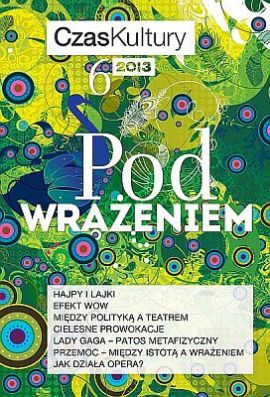
The concept of life as a theatre, as a stage for people to act, has its origins in the ancient world. You can already find it in Plato, and in the work of many later philosophers, writers and social researchers. It is also found in sociology. Political theatre has become a dominating force in the world of politics, where it has found fertile ground for growth, providing the metaphor of the theatre with yet another grotesque and often comical dimension. One of the finest and most distinctive actors in the “theatre politics” in twentieth- and twenty-first-century Europe has been Silvio Berlusconi, who for many years has efficiently manipulated public opinion and maintained a strong influence on political life in Italy. For years, he has also managed to escape justice – often using a “one-man theatre” technique.
More...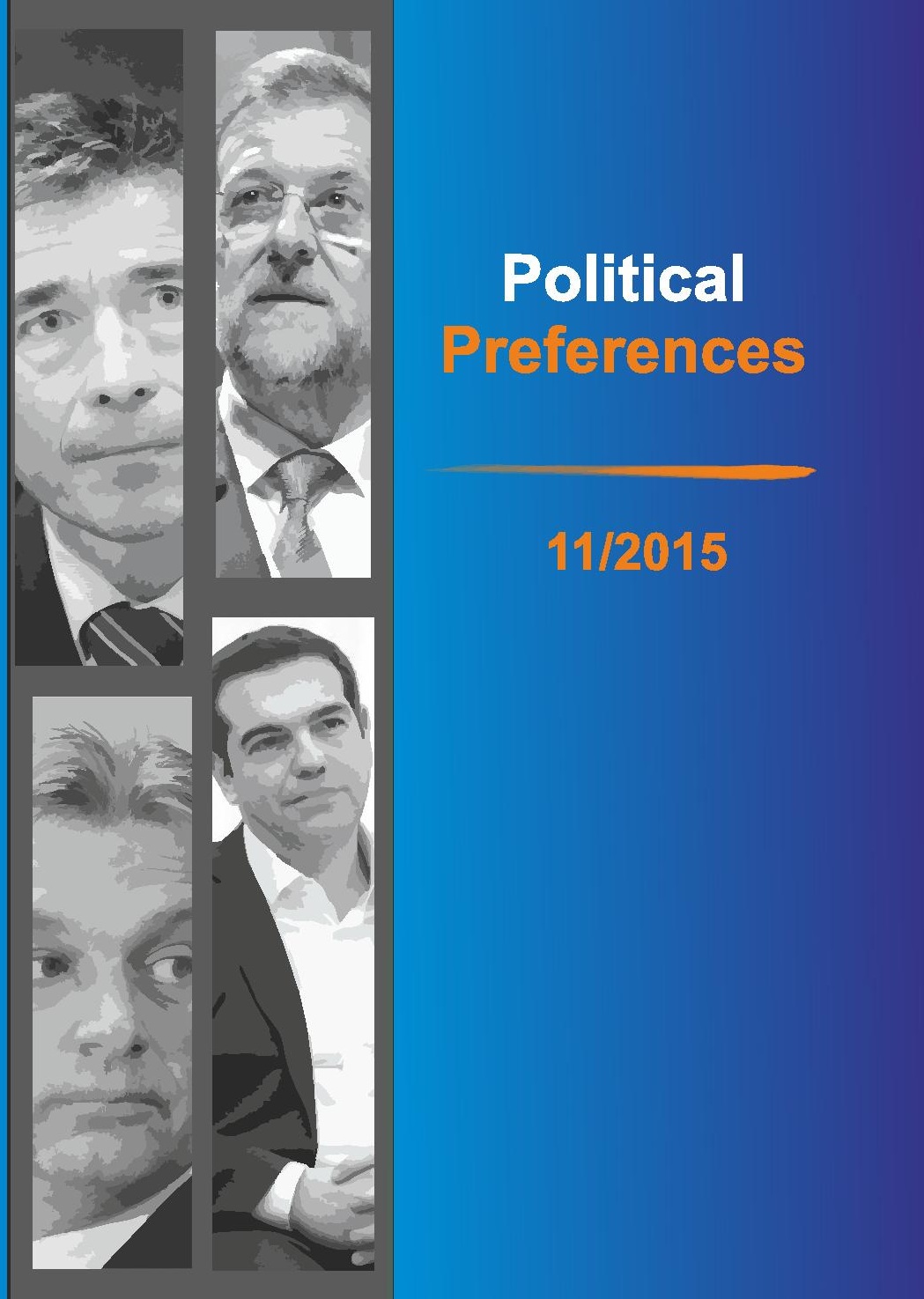
Presented article is aimed at examining the emotional attitudes to candidates for the president of Poland among pro-systemic and anti-systemic voters in 2015 presidential election and showing the influence of campaign TV ads on these groups of Polish electorate. The research conducted by author reveals that anti-systemic electorate is less interested in politics and more likely to be influenced by electoral TV spots. The study also confirms the relation between emotional attitudes to political actors and political preferences. According to the results of experiment anti-systemic voters expressed more positive feelings towards candidates from out of the political mainstream, and the other way round, the pro-systemic electorate rather liked the candidates presented by parliamentary parties.
More...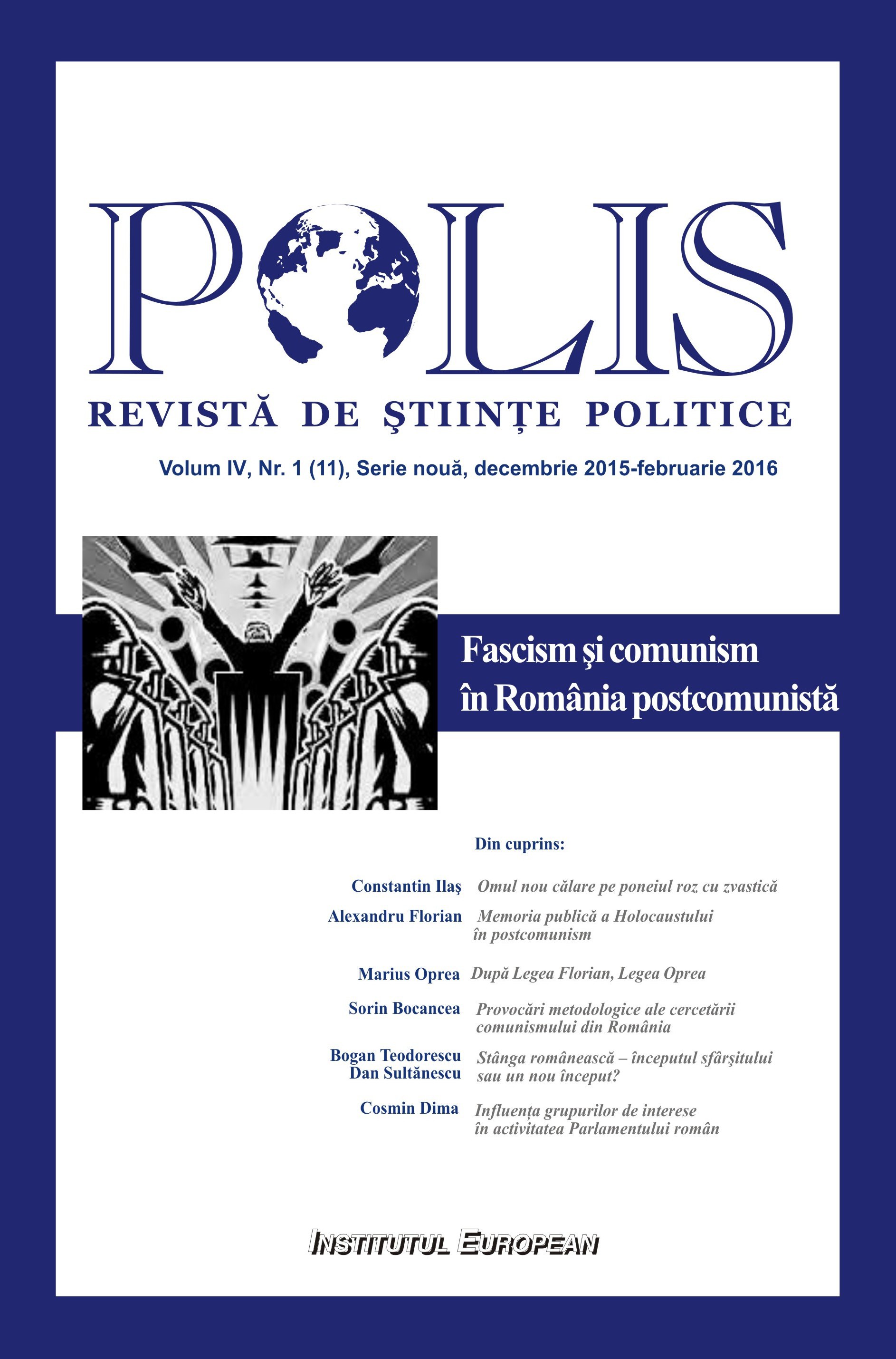
After PSD has lost the presidential elections in 2014, we are in a new context in which we need to discuss the possible decisive erosion of PSD electorate. We will analyze sociological data to see to what extent this possible erosion is based on something real or is just wishful thinking of PSD opponents
More...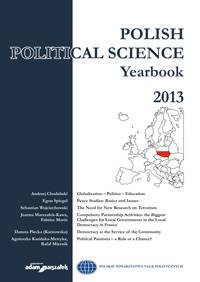
Politics is a particular field of social activity where accusing an opponent of mental incapacitation occurs as a frequent element of the conducted narrative. Moreover, public opinion discrediting a profession of a politician is very eager to question the mental health of political actors. Vocabulary used in the public is a vital testimony of societies attitude towards people with mental disorders. However, we refer paranoia to personality traits of individuals while political paranoia refers to reaction to events, facts or to the way it is seen by individuals or groups. The authors do not have any ambition to carry out a psychological analysis of politicians. What is intriguing is the issue of using political paranoia (searching for enemies, tracking plots, fighting in defence of ideals, irrational justification of failures) in the group spectrum for elections. What is also intriguing is the answer to the question whether politicians are paranoid, or it is a well-planned election strategy which aims to identify an opponent to consolidate a group of voters around the leader.
More...
Scientific discussion on political leadership increasingly takes on the form of interdisciplinary argumentation, in which different research perspectives, models and explanatory conceptual grids overlap. This state of affairs is on the one hand dictated by the contemporary trends in scientific research, especially in the broadly defined social sciences, where the cognitive, explanatory or descriptive relevance is achieved only by taking into account a broader, inter-disciplinary nature of scientific knowledge. In this sense, a thorough, reliable research practice consists primarily in crossing the formal borders of scientific disciplines, where researchers renounce the “complex” of detailed and firm definitions of their own subject of study to turn instead towards integration of knowledge from various, often very different, areas. The above is mainly due to the dispersion of objective scientific knowledge, which is conditioned, among others by: scientific and technical progress, the phenomenon of intertextuality (modern researchers in humanities concentrate their research eff ort on the texts and practices associated with this phenomenon, which means that their primary method in analyses of political phenomena is to fortify the text – specifically, to prepare the scientific text in such a way as to meet the standards of scientific writing and withstand criticism in the absence of the writer); as well as conceptual-theoretical pluralism present in social sciences. On the other hand, it is the result of scientific analysis of the given forms and practices of leadership, where nowadays greater attention is paid to the multi-dimensionality of leadership processes in politics, related to: the multi-level nature of concepts and research (meso, micro and macro-theoretical level analyses) and the need to take into account a large number of variables in the study of leadership (personality and environmental, situational, institutional factors, economic, political or religious variables). The consequence of this state of affairs is the multi-paradigm character of leadership, which in this case means that very often highly different ways of defining and explaining the complex relationship between a particular political leader and followers co-exist within the discipline. In addition, the multiplicity of paradigms of political leadership is a feature demonstrating the interdisciplinary nature of knowledge generated by political science, where various claims, theses, observations or conclusions complement each other, for example those originating in disciplines such as sociology, law, psychology, management sciences and cultural studies.
More...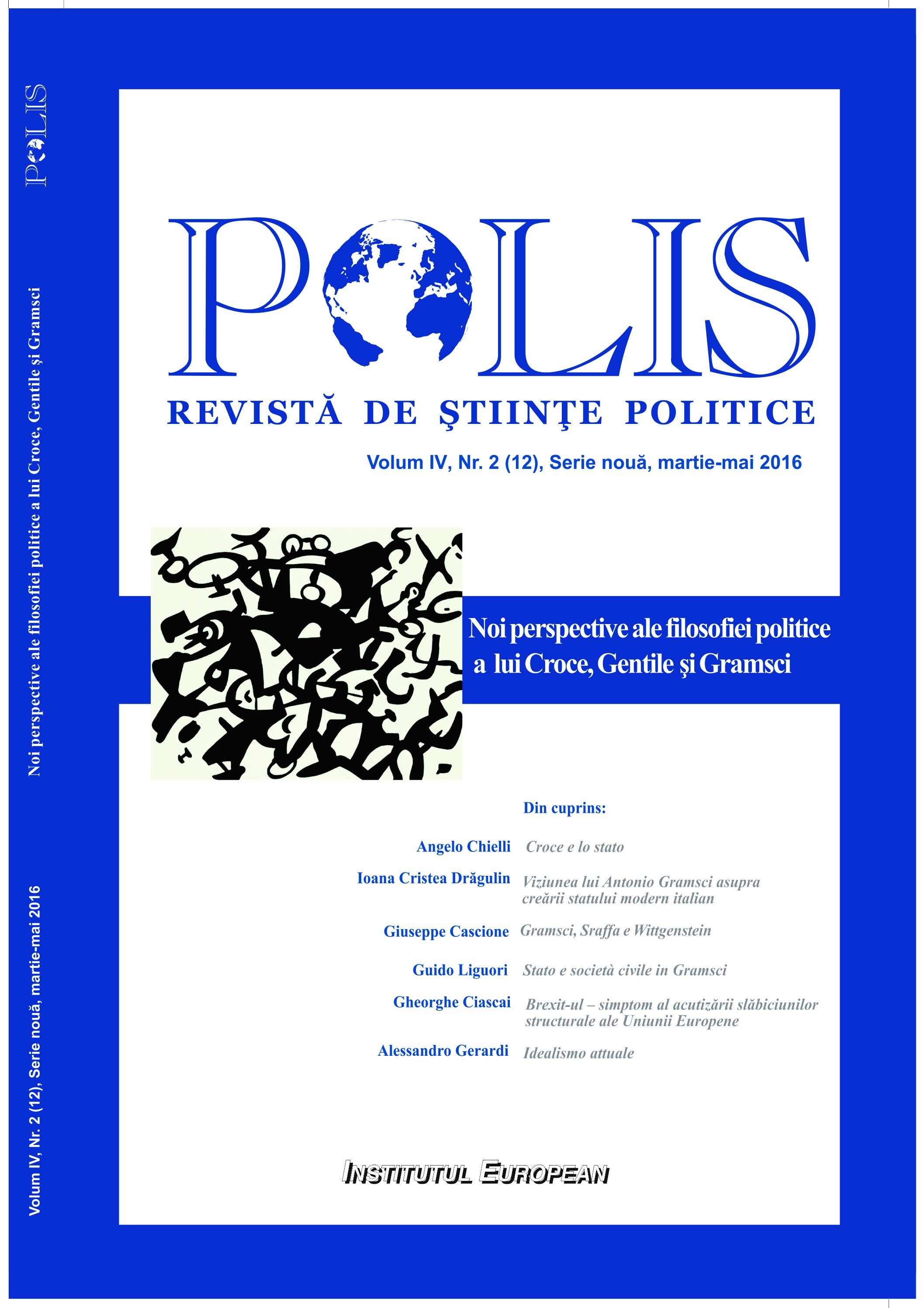
The article treats the impact of psychological researches upon the humanistic ethic came out from Lumières, and subsequently on the liberal thought influenced by that. Hence it first presents the crisis which psychoanalysis induced to the traditional image of human being as rational an capable of free will. It also shows the way that humanistic view was transformed and so recovered in a more democratic sense by the analytical psychology and mainly the cultural psychoanalysis.
More...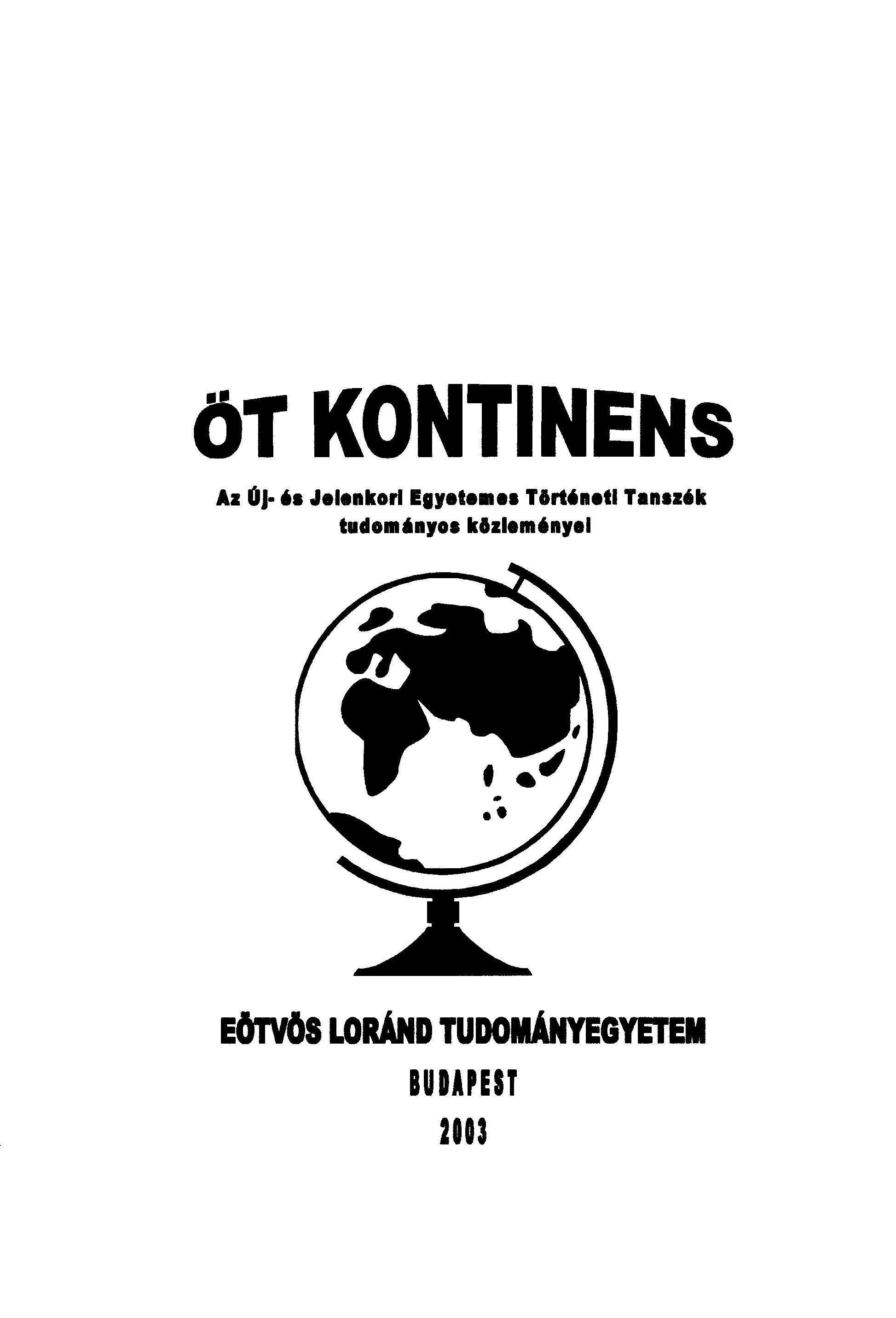
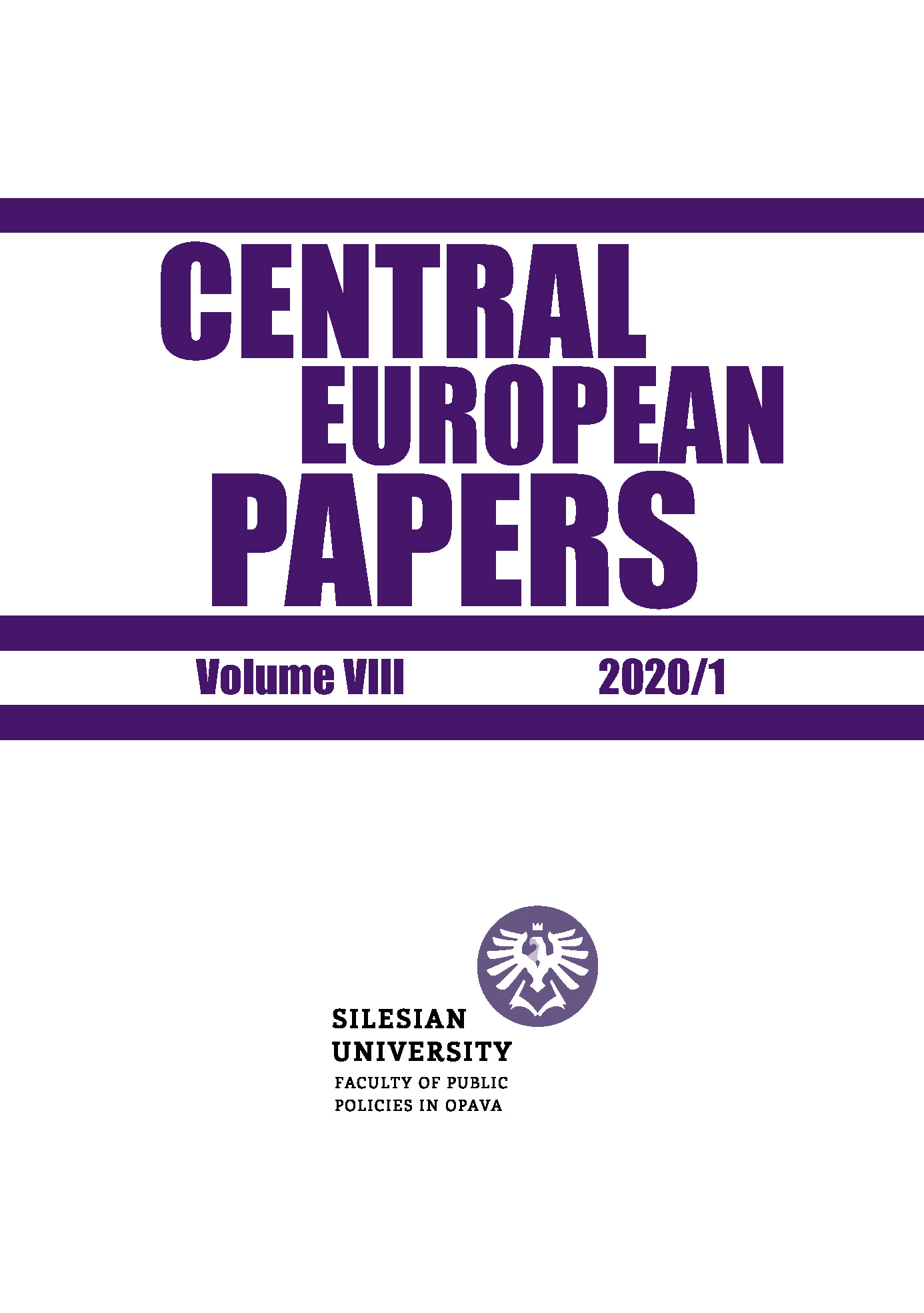
Victimhood nationalism has gained considerable attention in the past decade within nationalism studies. This theoretical article shows how recent research in the fields of international relations and victimology can help improve our understanding of Czech (Czechoslovak) nationalism. To do so, this study is using a selection of newspaper articles and unpublished archival materials from the period of the First World War, covering propaganda activities of Czechs (Masaryk, Beneš) and their allies or acquaintances in France, as well as those of Czech-Americans in the United States of America. By drawing on the definitions of victimhood nationalism within the context of the 20th century by Adam B. Lerner, and of Early Modern religious martyrdom by Brad S. Gregory, as well as on recent research conducted by Andrea Orzoff regarding the national identity of interwar Czechoslovakia, I highlight the importance and the singular aspect of the use of victimisation as a diplomatic and political strategy in the Czech case during the First World War.
More...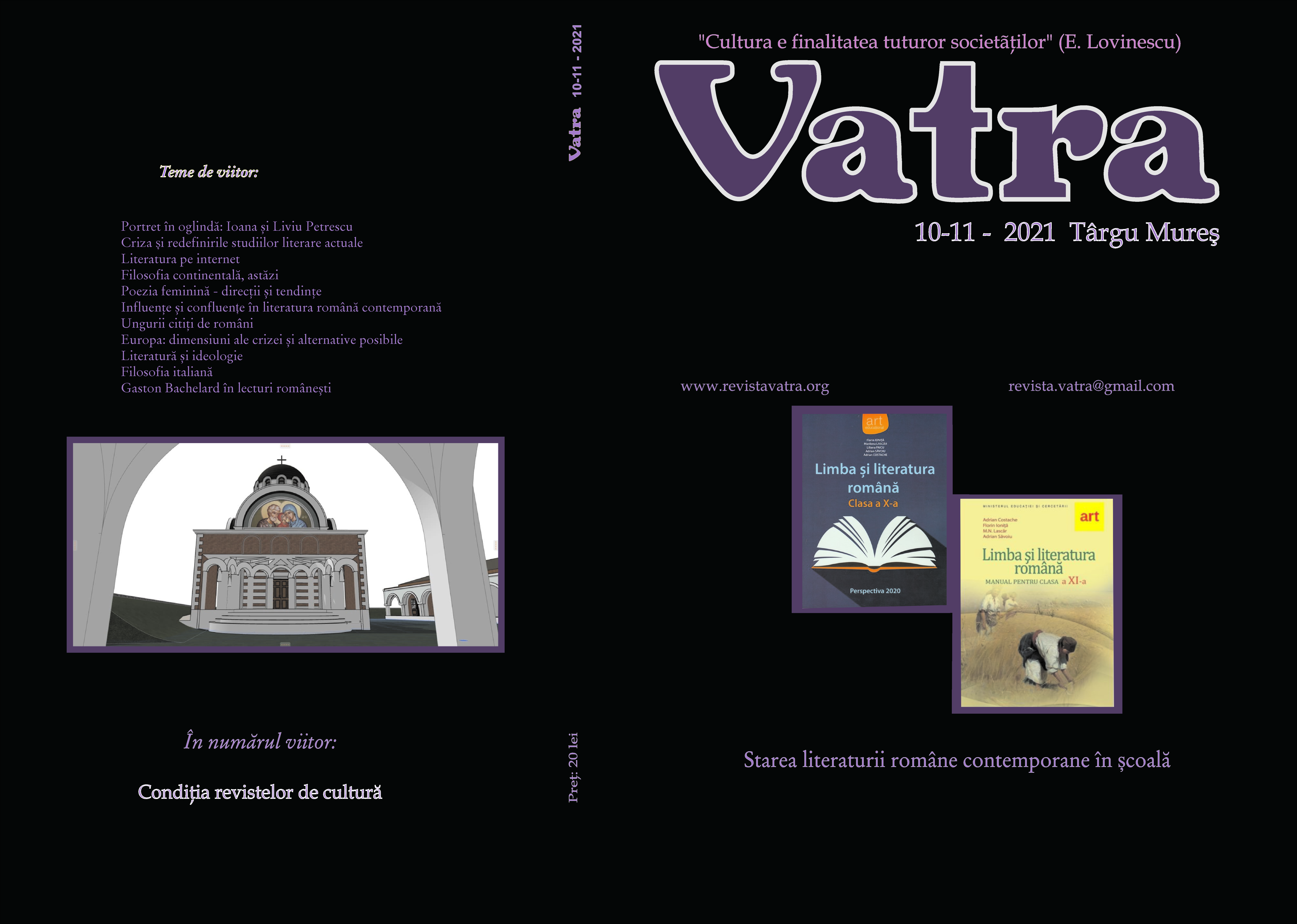
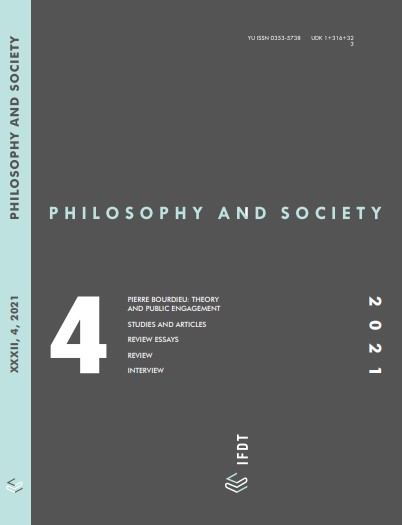
This article discusses the significance of social capital in Bourdieu-inspired analyses of contemporary South-East European societies. We first recapitulate Bourdieu’s theorization of social capital, emphasizing that it allows different operationalizations expressly because of its rather abstract theoretical character. Following that, we explain what is meant by “South-East European societies” and that their inequality-generating mechanisms are largely based on social closure. In the central part of the article, we comment on some attempts at operationalization of social capital in the SEE region. While we also discuss two cases of eclectically mixing Lin’s operationalization with Bourdieusian concepts, at the center of our attention is the elaboration of Bourdieu’s theorization of social capital put forward by the Serbian sociologist Predrag Cvetičanin. The relevance of his concepts of “social capital of solidarity” and “social capital of informal connections” for the study of class relations in post-socialist societies in South-East Europe highlights the advantages of a consistent application of the Bourdieusian framework in a contemporary (post-Bourdieusian) context.
More...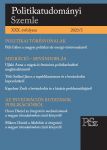
A puzzling aspect of Hungarian politics is the centerwise migration urge of the oppositional party Jobbik, dominating the right side of the political spectrum for long. Until the end of 2020, however, no remarkable change has taken place, in terms of political coordinate changes, between the stances of the left-liberal and rightist (Jobbik) oppositional blocks, meanwhile the government-opposition relationship has been substantially transformed. I apply the political space approach of Downs for studying this elongated getting-not-getting-closer period during the 2010s. I demonstrate that it was the relative political distance between the oppositional blocks, i. e., their distance compared to their remoteness to government positions, that has diminished, in parallel with a new political space dimension’s becoming dominant. The relative distance change did not require modifying the, oftentimes diametrical, political views of the oppositional blocks. By the end of the decade, their relative closing has been complemented with absolute distance decrease, as well as with aligning political space positions.
More...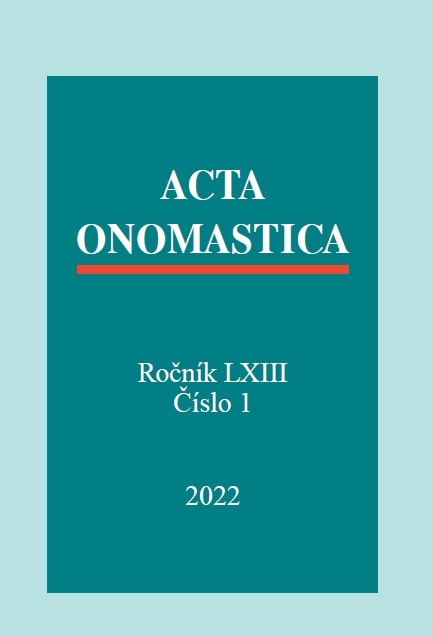
This study analyses the names of political formations (politonyms) in Spain from the start of the country’s transition to democracy in 1976 to the present day. Based on a corpus of more than 5,000 names, the evolution of the creative systems is examined according to a series of parameters: the hallmarks of territoriality, the use of collective names, and ideologically defined terms, as well as the global nature of the name and language used. The quantitative data confirm constant elements in the structuring of politonyms on the one hand, and changes in trends associated with historical events and the evolution of the political course itself, on the other.
More...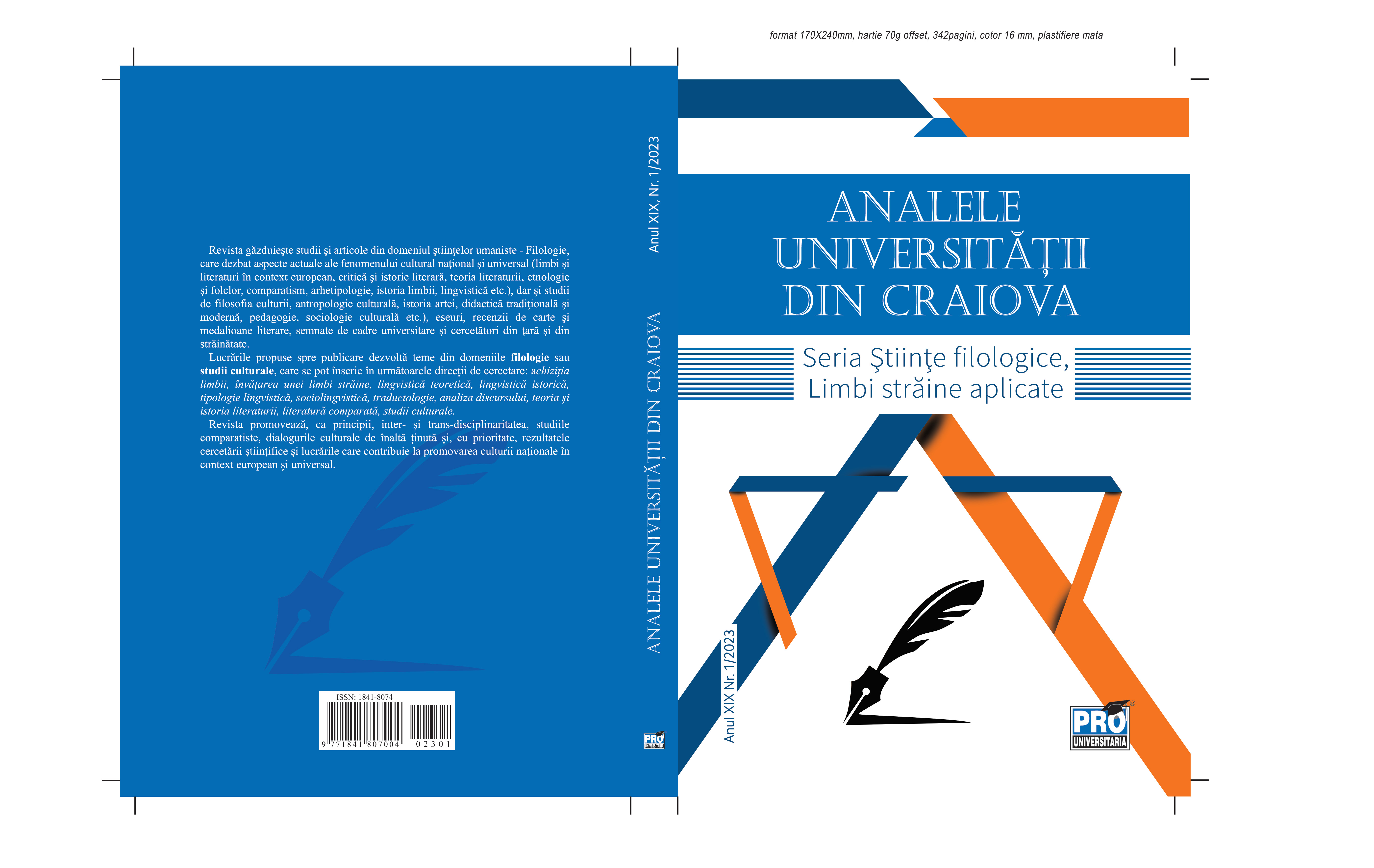
The paper dwells on the language of a political dialogue between two members of the UK Parliament in the House of Commons during the weekly event called Prime Minister’s Questions, which took place on the 29th March 2023. At the time, standing in for the Prime Minister was the Conservative Deputy Prime Minster, Lord Chancellor and Secretary of State for Justice, Dominic Raab; the other MP is Shadow Minister for the Cabinet Office, Deputy Leader of the Opposition and Deputy Leader of the Labour Party, Angela Rayner. The present analysis highlights textual and linguistic features of the discourse from several points of view: that of register, pragmatic and semantic, lexico-grammatical, rhetorical and stylistic. The verbal exchange is heated, with an intensely dramatic effect, with all the elements converging towards the conative function of communication, as the public is meant to be drawn to one side or the other of the political agenda.
More...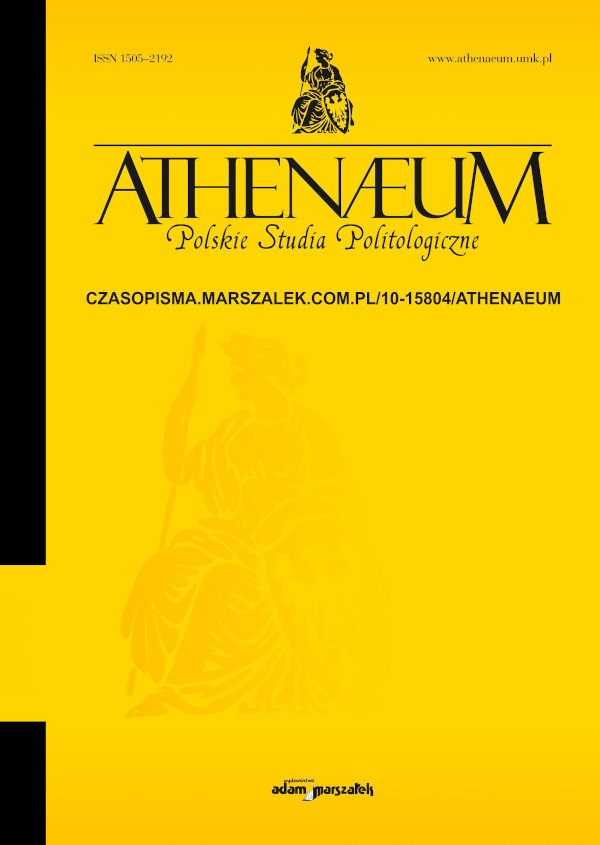
The article examines President Donald Trump’s leadership through the lenses of Bernard M. Bass’s model of transformational leadership. It starts with a description of what transformational leadership is and what it consists of. Second, the author takes a look at some of the features of transformational leadership, such as high ethical conduct, arousing team spirit, and inclusion of followers, and applies them to Trump. Finally, the author discusses the results of the analysis and explains why these findings are important and thought-provoking. The peculiar novelty of the study lies in the use of the theory and model of transformational leadership, developed by Bass and formulated on the basis of the science of management and organization. This is one of the innovative elements that distinguish the author’s project from previous works on political leadership.
More...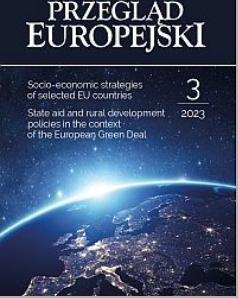
According to Niedermayer’s concept of Europarties’ development (1983), these organisations have to go through three phases (contact, cooperation, integration) to be fully institutionalised. The aim of this article is to analyse relationships between Europarties and their member parties on the basis of statutes of the former in order to answer the question of where individual Europarties should currently be placed in the Niedermayer’s model. The subjects of the analysis are all entities existing in the 9th European Parliament term of office (2019–2024): EPP, PES, ALDE, EGP, ECR, ID, PEL, EFA, EDP, ECPM. The analysis demonstrates that some Europarties tend to create supranational structure (e.g. EPP), others settle for transnational cooperation (e.g. PES). Therefore, we can ask whether completing the integration phase is the only way to institutionalise the Europarty.
More...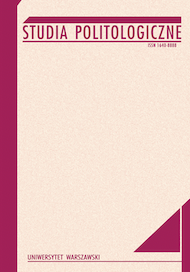
The basic thesis justified in the essay defines the relationship between the nature of cognitive processes attributable to humans and politics defined as the space of possible interactions between humans determined at the level of cultural artifacts in the form of ideas. It is based on fundamental distinctions about learning systems (cognitive systems) defining the ways (possibilities) in which they process information and the resulting cognitive limitations. In this approach, the human mind is one cognitive system. The thesis has the following formulation: if the process of understanding is the foundation of political thinking, then the reification of thought at the level of cultural artifacts is a cognitive trap that locks thinking, and political thinking in particular, into a tradition of copying and reproducing these artifacts. It is a process that leads to cognitive pathology at the social and political level, which is characterized by the hegemony of memory and imitation and, as a consequence, arbitrarily limits not only the scope of thinking but also the way we relate to the world. The above process renders meaningless the relationship between understanding and knowledge, transforming the latter into a mummified artifact of collective memory. Consequently, the artifacts of collective memory in the form of ideas become secondary objects or products that enter the political market, becoming elements of political circulation, alienated from their source and original function.
More...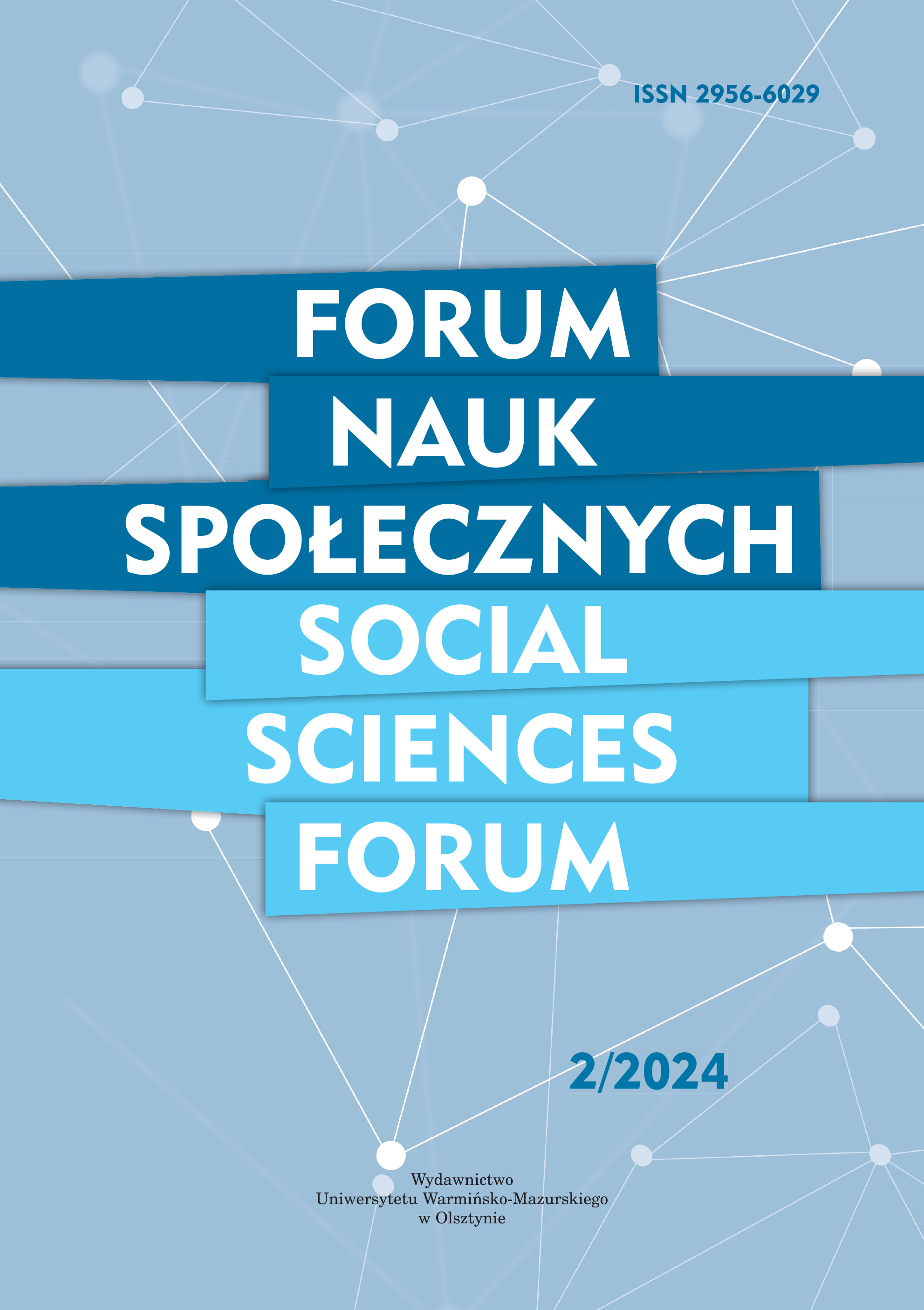
The aim of this article is to present the interrelationships between language and politics. Speaking, according to sociologists of language, is the linguistic behavior of individuals re- sulting from non-linguistic situations and the properties of their idd, shaped by the environ- mental and education. To name linguistic ways of perceiving reality, in the form of political communication, we use the term ‘discourse’, reflecting the functional aspect of language use. Discourse in this sense is situated between language and communication, in this approach, it is treated as a specific message, which takes into account its verbal plane and the circum- stances of its creation. Research on discourse draws on the achievements of many sciences: anthropology, history, rhetoric, stylistics, semiotics, literary studies, ethnography of speak- ing, political science and sociology. Researchers of the language of politics propose to name this new research discipline as ‘sociolinguistics’ or ‘political linguistics’.
More...